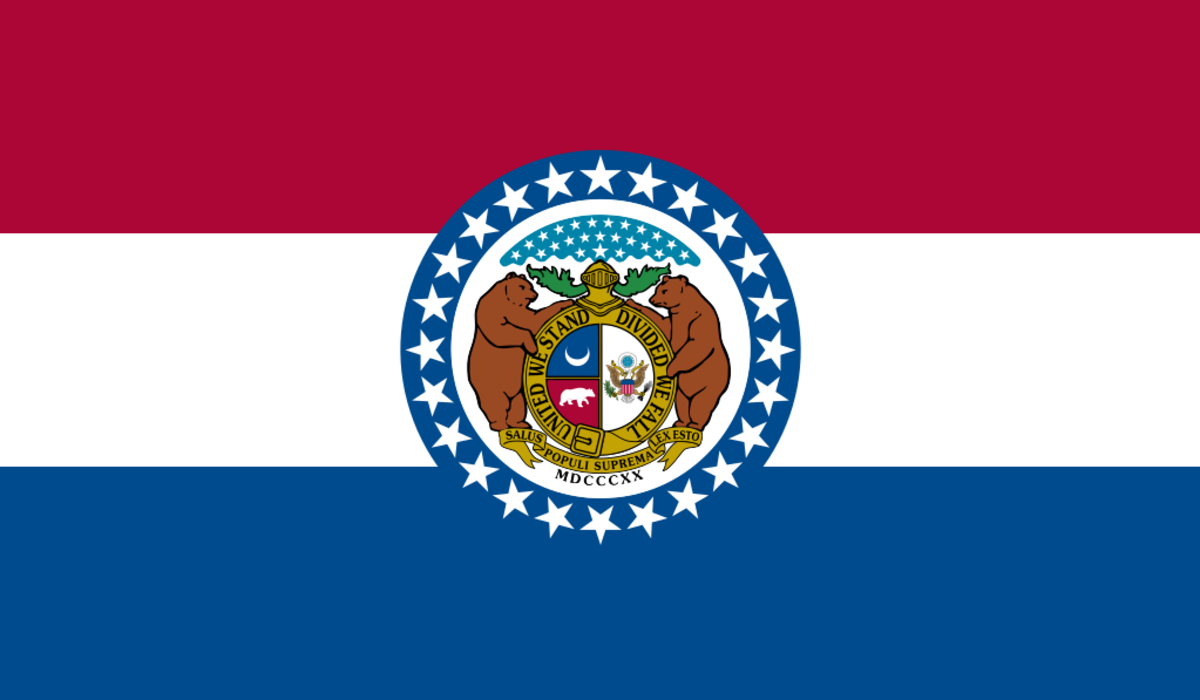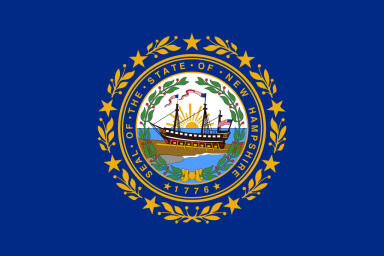Missouri Workers’ Compensation Laws

The staff of Amazon’s St. Peter’s fulfillment center filed a complaint in August 2023 regarding workplace safety, citing strenuous work conditions and a lack of adequate medical care. In the complaint filed with OSHA, the workers cited muscle injuries and back and neck issues that directly resulted from their work at Amazon.
This case is only one of numerous workplace injuries that have occurred in the Show-Me State in recent years. ABC 17 News reported that the number one industry in Missouri with the most workplace injuries in 2021 is the transportation and warehousing sector, with a total of 3,981 injuries, or a rate of 6.3 per 200,000 working hours.
The recent complaint filed by Amazon’s staff further highlights how companies need to prioritize workplace safety above all else. When a company fails to protect its staff, employees can then take it upon themselves to seek the proper compensation they are owed.
This article provides a comprehensive guideline to workers’ compensation laws in Missouri, as well as a brief overview of how to report an injury suffered while at work and the process for obtaining the compensation you need.
Missouri Workers’ Compensation Insurance Requirements
Employee Requirements
Businesses in Missouri with five or more employees are required by law to purchase workers’ compensation insurance. This law, however, does not apply to those in the construction industry since companies in this field need to carry workers’ compensation insurance even if they only have one employee.
If a company is not in the construction field but only has one employee, it is up to them whether they want to provide workers’ compensation.
Exemptions
Sole proprietors and partners of businesses in Missouri are not required to carry workers’ compensation insurance, but they can purchase a policy on their own accord for safety purposes.
Moreover, people who work for maritime, postal, and railroad companies are not obliged to be insured by Missouri workers’ compensation benefits since these individuals are covered by federal law.
Other exemptions include:
Qualified real estate agents.
Domestic workers for private homes.
Farm laborers.
Sports officials for interscholastic programs.
Tax-exempt organization volunteers.
Where to Purchase Missouri Workers’ Compensation Insurance
There are two ways employers can purchase Missouri workers’ compensation insurance:
Through an Insurance Carrier
Employers in the state can purchase a workers’ compensation policy in the state through insurance agencies. Before buying insurance, employers can inquire at the Missouri Department of Commerce and Insurance for assistance regarding the rates of policies in the area.
Through Self-Insurance
In Missouri, employers can choose to apply through the insurance unit of the Division of Workers’ Compensation to self-insure.
An employer must meet the financial capability requirements to be approved for the program. If not, it will negatively impact the stability of their businesses’ finances.
To prove this, they must provide various paperwork documenting their finances, such as:
Evidence of income statements and balance sheets from four years before they applied for self-insurance.
Reports of the amount of funds they reserved for any pending claims, along with the workers’ compensation benefits they paid up to the current date.
A Certificate of Good Standing for their company.
A chart showing the company’s organizational structure.
Their process of administering their company’s workers’ compensation obligations.
After presenting these factors, it is up to the Division to decide if the company is financially fit to self-insure or not.
Most employers in the state opt for self-insurance since it reduces the cost of actually buying a policy from an agency.
There are two types of self-insurance:
This type of Missouri workers’ compensation self-insurance is designed for large companies that want to take care of the costs of injuries their employees suffer while on the job. The employer will solely be liable for compensating its workers and paying their workers’ compensation benefits since there will be no insurance company to assume the responsibility.
A group trust self-insurance means a number of companies, particularly those in the same industry or association, will contribute or pool their money to a shared fund. This fund will then be used to cover expenses if an employee of a member company gets hurt while on the job.
Poster Requirement
State and federal laws require businesses in Missouri to display workers’ compensation posters in their place of work to maintain the safety of their workers and compliance with the law. These posters include:
WC-107 - Missouri Workers’ Compensation Law
MODES-B-2 - Notice to Workers Concerning Unemployment Benefits
WC-258 - Fraud & Noncompliance
Other than posters for workers’ compensation benefits, more posters are required to be put up to avoid disputes between employees and employers.
Penalties for Not Carrying Missouri Workers’ Compensation Insurance
Failing to carry workers’ compensation insurance in Missouri is a criminal violation. The first offense constitutes a penalty of a Class A misdemeanor, which is a year in jail and a $2,000 fine.
The penalties are even worse for employers who knowingly neglect carrying Missouri workers’ comp insurance and violate legal obligations in accordance with the state’s workers’ compensation laws. This action will lead to a charge of Class E felony, which can result in the employer spending up to four years in jail and a $10,000 fine.
Other than the fines and criminal offenses associated with not carrying Missouri workers’ compensation insurance, employers may also face personal injury lawsuits from their employees.
Missouri Workers’ Compensation Benefits</h2>
Lost Wages Benefits
An injured employee is entitled to temporary total disability benefits, or TTD benefits if a medical provider declares that they will be unable to return to work because of their sustained injuries or if they’re still recovering from surgery.
This type of benefit will be paid to the employee per week and is calculated based on two-thirds of their average weekly income.
Disability Benefits
An employee will be entitled to two types of benefits if their work-related injury has hindered them from working:
Permanent Total Disability
This benefit will apply if the employee’s injury is permanent, causing them to be unable to work for a long time or even for the rest of their lives.
Permanent Partial Disability
This benefit is given if the injury that the employee sustained while on the job affected their capability to perform their duties.
Survivor Benefits
These are for surviving family members of employees in Missouri who passed away in the line of duty. This type of benefit is available, particularly for family members or beneficiaries of volunteer firefighters, law enforcement officers, emergency medical technicians, and the like.
Additional Benefits (Toxic Exposure)
This type of benefit is particularly given to workers who suffer from occupational diseases as a result of being exposed to toxic chemicals at work. The Missouri Department of Labor & Industrial Relations has a full list of cases covered by this benefit.
How to File a Workers’ Compensation Claim in Missouri
Several factors can affect the rejection of a claim or how long it gets settled. The sections below will provide you with the necessary information you need for the filing process.
When Is the Deadline for Workers’ Compensation Claims in Missouri?
Injured employees in Missouri can file a Missouri workers’ comp claim within two years after the injury happened or if the employer fails to file a Report of Injury with the Division within three years. However, before submitting a workers’ comp claim in Missouri, employees must first report their injury to their employer within 30 days.
A Step-By-Step Guide on Filing a Workers’ Compensation Claim in Missouri
Now that we’ve identified the statute of limitations for filing a Missouri workers’ comp claim and what type of benefits you should be asking your insurer or employer, the sections below will introduce you to the step-by-step process of filing a claim in the state.
Report the Injury
As mentioned in the previous section, you must first report the injury to your supervisor or employer within 30 days. You might not get the compensation you deserve or have your claim denied during the first filing process if you fail to report it.
You must send a written notice to your employer about the injury. This will include the specifics of the accident, such as your name and address, the place, time, and the date it happened, along with the nature or extent of the damages you sustained.
When you report your injury, make sure to have a copy of your own report, along with the details of when and how you mailed your written notice.
Verify if Your Employer Reported Your Injury
Workers’ compensation claims in Missouri are typically pursued because employers fail to report the injury to the Division. Employers who are completely aware of the situation and choose not to report it within the given deadline may be penalized with imprisonment or fines, sometimes both.
If you suspect that your employer has not forwarded your report, you can verify it with the Division by dialing 800-775-2667.
Attend a Dispute Management Consultation and a Conference
It’s important for you to understand that if your employer fails to report your injury to the division, you might not get the benefits entitled to you.
In Missouri, both the employee and their employer can use various means to settle the case, such as through:
Dispute Management Services
This solution is provided by the Division’s Dispute Management Unit, which is designed to assist parties who want to resolve their issues regarding a Missouri workers’ comp benefits claim.
Conferences
Before you file a claim, you and your employer must attend a conference, which is a proceeding held in the presence of administrative law judges.
Most of the time, the Division will be the one to suggest a conference, but if that is not the case, either of the parties will have to complete and submit a Request for Conference.
After filing the request, both parties will then receive a Notice of Conference presenting the details, such as the time and place of the conference, along with the names of the people involved in the dispute.
File a Missouri Workers’ Comp Claim
If all means have been applied to attempt to resolve your Missouri workers’ comp case but to no avail, you can go ahead and file a claim with the Division. Take careful note of the time limit to file a claim discussed earlier.
Moreover, before submitting the claim, there are certain things that you must consider, such as:
Avoid altering the Claim form since doing so can result in the Division not accepting the altered form for processing.
Submit three original copies of the form for every employer you’re filing the claim for, and make sure to keep a copy for yourself.
If you have any second job wages, you must include this information in the form.
Unless you are represented by an attorney, you, the claimant, are required to sign Box 15 of the form.
Undergo the Legal Process
Now that you’ve already filed the claim with the Division, you have to mentally prepare yourself for the lengthy process associated with a Missouri workers’ comp claim. The process will involve:
Pre-hearing
This procedure is done in the presence of administrative law judges to delve into the issues in the case.
To request a pre-hearing, the claimant must complete and submit a Request for Pre-Hearing to the appropriate adjudication office.
Mediation
Similar to the pre-hearing, parties must file a Request for Mediation for the procedure to begin.
The administrative judges from the pre-hearing will only approve this request for mediation if it is evident that the issues from the hearing have developed enough to be discussed in the presence of a mediator.
Hardship Hearing
If you claim that you are not at the peak of your medical improvement or if your employer fails to provide you with the medical treatment and benefits you need, you can request a hardship hearing to discuss these issues.
To call upon this type of hearing, the employee must submit a Request for Hardship Hearing to the designated adjudication office.
Final Hearing
The final hearing is conducted when the case is ready to be resolved or if the employee has ultimately improved their medical recovery.
The employee must file a Request for Hearing-Final Award to get this process started and then send a copy of the form to all parties involved.
What Should One Do If a Workers’ Compensation Claim in Missouri Has Been Denied?
If your claim has been denied, or you are not satisfied with the compensation awarded to you, you can still appeal your case to the Division. Your employer or insurer also has the right to do so.
However, before filing an appeal, you need to understand that the Commission has reasons for denying claims in the first place. These could be:
Your injury existed before you got the job.
You were injured outside of work.
You did not follow the right procedure for reporting your injury and filing the claim.
Your accident was caused by drug and alcohol use.
If none of these are factored into your claim, you can go ahead with the appeal process. To begin this, the administrative judge for your case will have to ask the Labor Commission to go over the award once again, especially if the reason for the appeal was your dissatisfaction with the compensation amount.
Legal Resources for Injured Workers in Missouri
The sections below list the resources necessary for understanding Missouri workers’ compensation laws and getting assistance for your specific case.
Division of Workers’ Compensation
The Division of Workers’ Compensation of Missouri’s Department of Labor & Industrial Relations serves individuals who suffered injuries due to their job, along with those exposed to toxic chemicals and occupational diseases. It provides various resources for the workers of the state, such as the details of filing a Missouri workers’ comp claim, how to obtain a lawyer, benefits available for the injured, and ways to take on disputes with insurers and employers.
Missouri Jobs with Justice
Missouri Jobs with Justice is a non-profit organization that advocates for the rights of all employees regardless of their identity, race, age, or immigration status. Since its incorporation in 1999, the organization’s members have come together to protect the rights of the workforce in Missouri and gained commendable results. These include expanding Medicaid, increasing the income of minimum-wage workers, and stopping large businesses from privatizing public goods and outsourcing jobs.
Missouri AFL-CIO
Missouri AFL-CIO is a federal union in the state affiliated with the National American Federation of Labor-Congress Organizations. The organization advocates for the rights of working families by educating and supporting employees to practice their right to form a union in their workplace.
Expertise.com StaffAuthor
Step into the world of Expertise.com, your go-to hub for credible insights. We don't take accuracy lightly around here. Our squad of expert reviewers, each a maestro in their field, has given the green light to every single article you'll find. From rigorous fact-checking to meticulous evaluations of service providers, we've got it all covered. So feel free to dive in and explore. The information you'll uncover has been stamped with the seal of approval by our top-notch experts.




